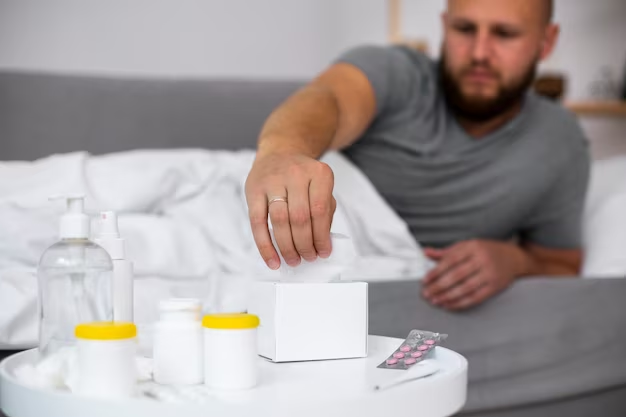The following is a brief introduction to the topic:
Anxiety, a debilitating and common mental disorder, affects millions of individuals worldwide. Anxiety is characterized as excessive worry and fear. It can also cause physical and emotional symptoms which can have a significant impact on a person’s life. Although anxiety is primarily mental, it can have a profound effect on the physical health. This includes its impact on different skin conditions. Stress and mental health are known to exacerbate and even trigger skin conditions. This article will examine the complex relationship between anxiety, skin conditions and psychological factors.
The Physiological Connection
Skin inflammation and stress hormones
Stress is one of the main ways that anxiety can affect the skin. Stress or anxiety can cause your body to release a rush of stress hormones such as adrenaline and cortisol. These hormones cause a cascade physiological response, which includes the release of inflammation markers. This inflammation can cause a number of skin problems, such as redness, swelling and itching. Chronic stress and high levels of cortisol are also linked to skin conditions such as eczema and psoriasis.
Weaken Immune System
Anxiety can also weaken your immune system and make you less able to fight off infections or maintain skin health. An immune system that is compromised can cause wounds to heal slower and increase the risk of bacterial or fungus skin infections. Stress can also cause conditions such as herpes or shingles. These are dormant virus infections that become active when stressed.
Psychological Factors
Skin Picking and Dermatillomania
Anxiety can manifest as tension, restlessness and nervous habits. This can lead to repetitive behaviors such as skin-picking and dermatillomania. These behaviors may cause damage to the skin including scarring, infections, and open sores. The mental disorder Dermatillomania is characterized by compulsive picking of the skin. It often occurs in conjunction with anxiety disorders. These behaviors can worsen skin conditions and create new ones.
Body Dysmorphic disorder (BDD)
Body Dysmorphic disorder is a mental illness closely linked to anxiety. The disorder is characterized by an excessive obsession with perceived defects or flaws in the appearance. People with BDD are often obsessed by their skin imperfections, even if they are minor or nonexistent. This obsession can lead people to use excessive skincare products and cosmetic procedures. These can exacerbate skin issues, and create a vicious circle of anxiety and skin issues.
Emotional Impact
Self-Esteem & Body Image
Anxiety can affect a person’s body image and self-esteem. The physical symptoms of anxiety such as blushing and sweating can exacerbate feelings of insecurity. It can cause increased anxiety and stress, which in turn can aggravate skin conditions.
Isolation Social
Social isolation can be caused by the emotional and psychological effects of anxiety. Severe anxiety can cause people to avoid social situations or isolate themselves, which leads to depression and feelings of loneliness. Lack of social support may exacerbate skin conditions and anxiety, since social relationships and emotional wellbeing are essential for overall health.
Quality of Life
Interplay between anxiety disorders and skin conditions can reduce the quality of life for a person. Skin conditions can be painful, uncomfortable or disfiguring. Both the anxiety and the skin condition can have a negative impact on the quality of your life. Skin issues can cause people to become obsessed with them, affecting their ability to live life fully.
Common skin conditions aggravated by anxiety
Acne
Acne, a skin disorder that is often aggravated by stress and anxiety, can be a serious condition. Stress hormones such as cortisol can cause the sebaceous ducts to produce extra oil. Oil can block pores, causing pimples and lesions. Stress can also exacerbate the inflammatory response in the skin. This makes existing acne lesions look redder and inflamed.
Eczema (Atopic Dermatitis)
Eczema or atopic dermitis is a chronic condition of the skin characterized by itchy, dry skin. Stress and anxiety may trigger or worsen eczema. Stress can cause skin inflammation and itching.
Psoriasis
Psoriasis, an autoimmune condition, is characterized by rapid skin cell growth, which leads to thick, scaly patches. Stress and anxiety can worsen the symptoms of psoriasis by activating your body’s immune system, causing increased inflammation and new lesions to develop.
Rosacea
Rosacea is an inflammatory skin condition that causes facial flushing and visible blood vessels. Stress and anxiety can cause rosacea to flare up, although the exact cause is unknown. Emotional distress can cause blood vessels to dilate and increase skin sensitivity. This will worsen the symptoms of rosacea.
Hives (Urticaria)
Histamine can cause hives or urticaria. These are itchy, raised welts that appear on the skin. Anxiety may trigger the release of histamine and cause hives for those who are susceptible to this reaction. Stress-induced hives usually disappear after the anxiety or stress has subsided.
Skin conditions and anxiety: Coping strategies
Stress Management
Stress management is essential to managing skin conditions caused by anxiety. Deep breathing, mindfulness, yoga and meditation can reduce stress and improve the overall health of your skin.
Psychological Support
Seeking psychological help is crucial for treating anxiety-related skin problems. Psychotherapy such as dialectical behavior therapy or cognitive-behavioral treatment (CBT) can help people learn to deal with anxiety and reduce harmful behaviours like excessive skin care or skin picking.
Skincare Routine
It is important to establish a skincare routine that will help you manage skin conditions that are aggravated by stress. Skin health can be maintained by using gentle cleansing products, moisturizing them, and avoiding products that are harsh or irritating. A dermatologist will be able to provide you with personalized treatment options and advice for your specific skin condition.
Medication
Some medications can be prescribed to treat both skin problems and anxiety. Antidepressants, beta-blockers, and anti-anxiety medication may be prescribed for anxiety. Skin conditions can be treated with topical or oral medication, depending on severity and type.
Lifestyle Modifications
A healthy lifestyle will positively affect both skin and anxiety. Regular exercise, a healthy diet, enough sleep and the avoidance of alcohol and tobacco will help you manage your anxiety and reduce skin problems.
The conclusion of the article is:
In the fields of dermatology, psychology, and healthcare, there is increasing interest in the complex relationship between anxiety, skin conditions, and other factors. Understanding the psychological, physiological, and emotional factors which link anxiety to skin conditions is crucial for management and treatment. Individuals can improve their mental health by addressing stress and anxiety through the use of appropriate strategies. They should also seek professional help if necessary. The underlying anxiety can be just as important to treat as the skin condition, since they are often linked in a complex cause-and-effect cycle.




